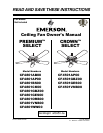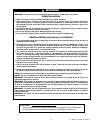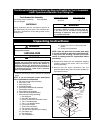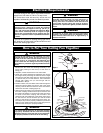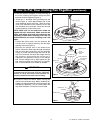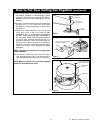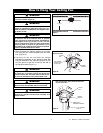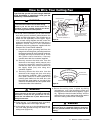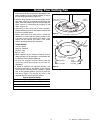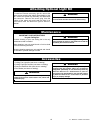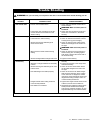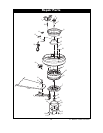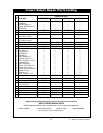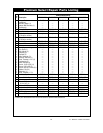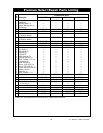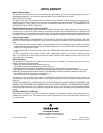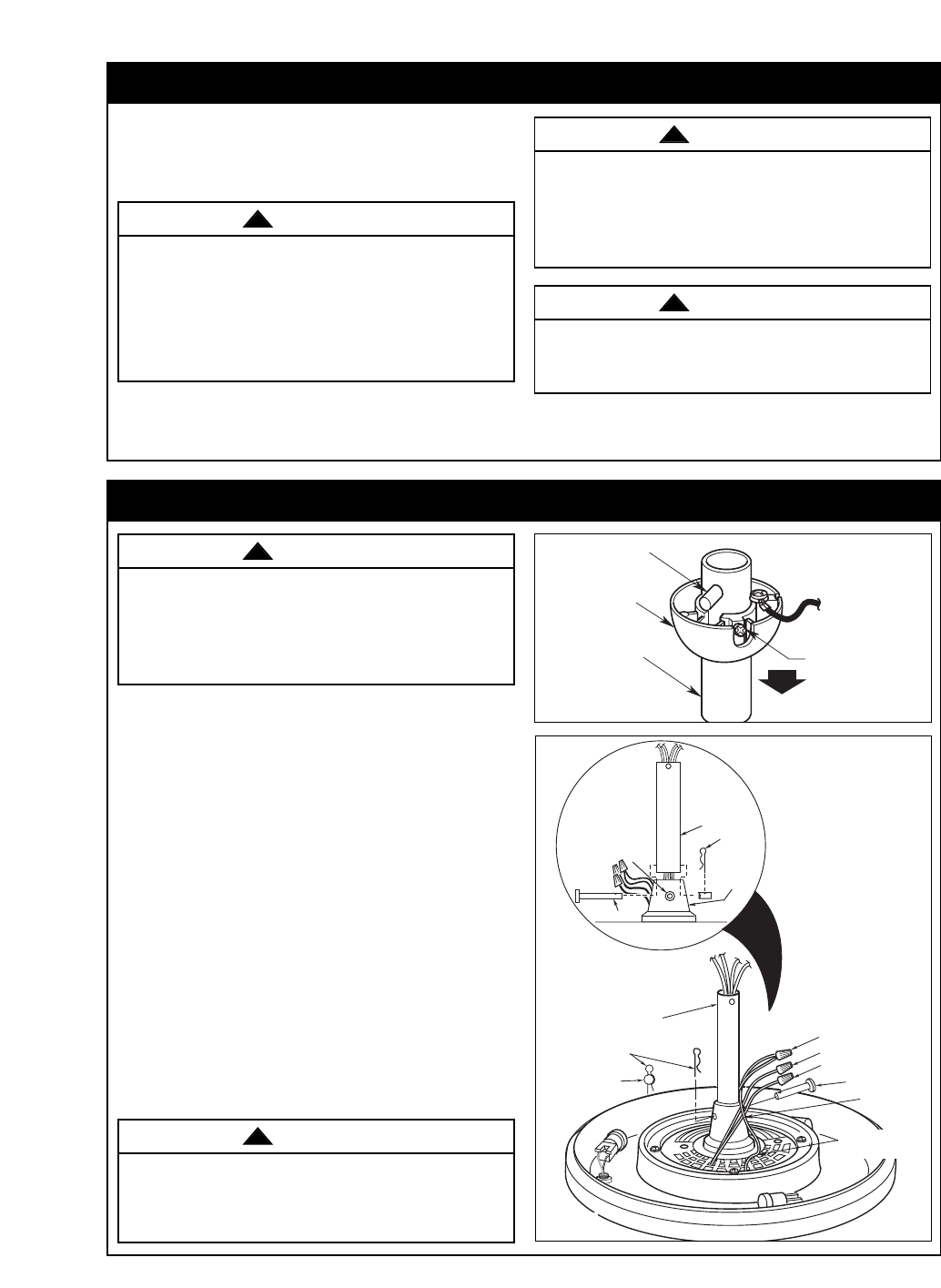
4
U.L. Model No.: CF4801 and CF4501
Electrical Requirements
How to Put Your Ceiling Fan Together
SETSCREW
CLEVIS PIN
MOTOR
COUPLING
DOWNROD
HAIRPIN
CLIP
MOTOR
COUPLING
HAIRPIN
CLIP
CLEVIS
PIN
DOWNROD
BROWN LEAD
RED LEAD
CLEVIS PIN
YELLOW LEAD
FROM UPLIGHT
YELLOW LEADS
Figure 2
PIN
HANGER
BALL
SETSCREW
DOWNROD
Figure 1
If your fan is to replace an existing ceiling light fixture,
turn electricity off at the main fuse box at this time and
remove the existing light fixture.
Your new ceiling fan will require a grounded electrical
supply line of 120 volts AC, 60 Hz, 15 amp circuit.
The outlet box must be securely anchored and
capable of withstanding a load of at least 50 pounds.
To avoid fire or shock, follow all wiring instructions
carefully. Any electrical work not described in these
instructions should be done or approved by a
licensed electrician.
Turning off wall switch is not sufficient. To avoid
possible electrical shock, be sure electricity is
turned off at the main fuse box before wiring. All
wiring must be in accordance with National and
Local codes and the ceiling fan must be properly
grounded as a precaution against possible electrical
shock.
WARNING
!
Turning off wall switch is not sufficient. To avoid
possible electrical shock, be sure electricity is
turned off at the main fuse box before wiring. All
wiring must be in accordance with National and
Local codes and the ceiling fan must be properly
grounded as a precaution against possible electrical
shock.
WARNING
!
WARNING
!
To reduce the risk of fire, electrical shock, or
personal injury, mount fan to outlet box marked
“Acceptable for Fan Support of 22.7 kg. (50 lbs.) or
less”, and use screws supplied with outlet box. Most
outlet boxes commonly used for support of light
fixtures are not acceptable for fan support and may
need to be replaced. Consult a qualified electrician if
in doubt.
WARNING
!
1. Position the fan motor and housing assembly in the
lower foam packing so that the top of the motor is
facing you.
2. Separate, untwist and unkink the four motor leads.
3. Obtain the hanger ball/downrod assembly and remove
the hanger ball by loosening the setscrew in the hanger
ball until the ball falls freely down the downrod (Figure
1). Remove the pin from the downrod , then remove the
hanger ball. Retain the pin and hanger ball for
reinstallation in Step 6.
4. Route the white, blue, and black motor leads through the
downrod. Fold the yellow wire into the slot in the motor
coupling, slide the downrod down the wires and seat the
downrod in the motor coupling (Figure 2).
5. Align the clevis pin holes in the downrod with the holes in
the motor coupling. Install the clevis pin and secure with
the hairpin clip (Figure 2). The clevis pin must go through
the holes in the motor coupling and the holes in the
downrod. Push the straight leg of the hairpin clip through
the hole near the end of the clevis pin until the curved
portion of the hairpin clip snaps around the clevis pin.
The hairpin clip must be properly installed to prevent the
clevis pin from working loose. Pull on the hanger ball to
make sure the clevis pin is properly installed.
It is critical that the clevis pin in the motor coupling
is properly installed and the setscrews securely
tightened. Failure to verify that the pin and setscrews
are properly installed could result in the fan falling.
WARNING
!



